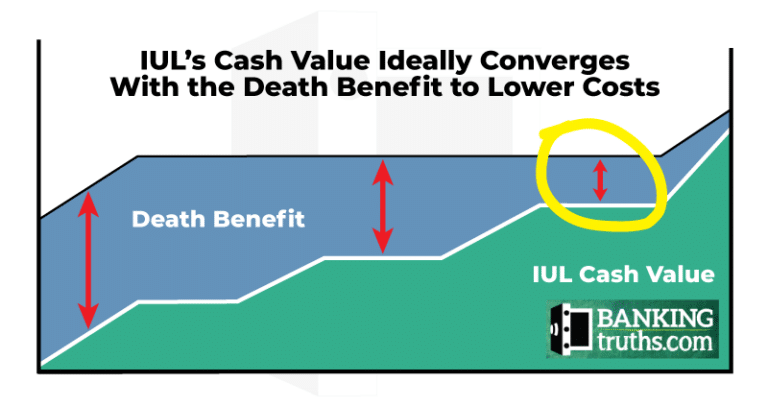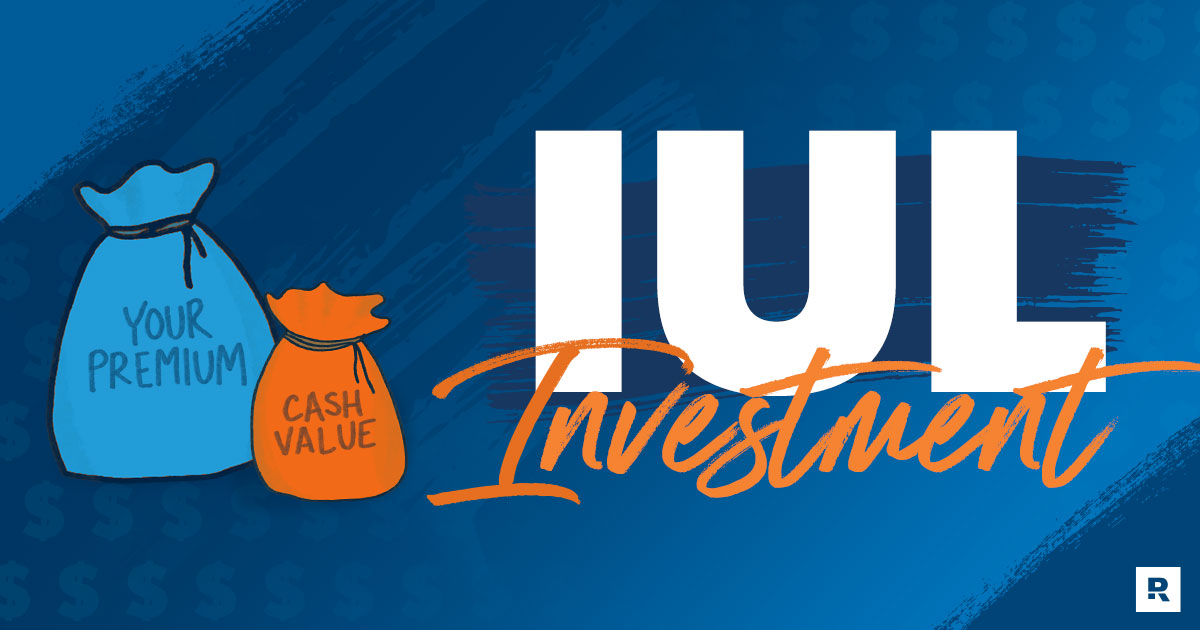All Categories
Featured
Table of Contents
Do they contrast the IUL to something like the Vanguard Overall Supply Market Fund Admiral Shares with no lots, an expenditure proportion (ER) of 5 basis points, a turn over proportion of 4.3%, and a remarkable tax-efficient document of circulations? No, they compare it to some terrible actively managed fund with an 8% tons, a 2% EMERGENCY ROOM, an 80% turnover ratio, and an awful record of short-term resources gain distributions.
Shared funds often make yearly taxed circulations to fund proprietors, even when the worth of their fund has gone down in value. Mutual funds not just call for revenue reporting (and the resulting annual taxes) when the shared fund is increasing in value, but can likewise impose income tax obligations in a year when the fund has gone down in value.
That's not just how mutual funds function. You can tax-manage the fund, gathering losses and gains in order to lessen taxed circulations to the financiers, however that isn't in some way mosting likely to alter the reported return of the fund. Just Bernie Madoff kinds can do that. IULs stay clear of myriad tax obligation catches. The ownership of common funds might need the shared fund proprietor to pay approximated tax obligations.

IULs are easy to place to make sure that, at the proprietor's fatality, the recipient is exempt to either income or inheritance tax. The very same tax reduction methods do not function virtually too with mutual funds. There are many, often pricey, tax obligation catches connected with the timed trading of common fund shares, traps that do not use to indexed life insurance policy.
Opportunities aren't really high that you're going to be subject to the AMT because of your shared fund circulations if you aren't without them. The rest of this one is half-truths at ideal. For circumstances, while it is real that there is no earnings tax due to your successors when they inherit the proceeds of your IUL plan, it is also true that there is no earnings tax due to your heirs when they inherit a common fund in a taxed account from you.
Iul Reviews
There are better methods to prevent estate tax issues than buying financial investments with low returns. Mutual funds might trigger income tax of Social Safety and security advantages.

The growth within the IUL is tax-deferred and may be taken as tax obligation free earnings via car loans. The policy owner (vs. the common fund supervisor) is in control of his/her reportable earnings, hence enabling them to reduce or even remove the taxation of their Social Security benefits. This is terrific.
Right here's one more very little problem. It's real if you purchase a shared fund for say $10 per share just before the circulation date, and it distributes a $0.50 distribution, you are then going to owe taxes (possibly 7-10 cents per share) although that you haven't yet had any type of gains.
In the end, it's truly regarding the after-tax return, not how much you pay in taxes. You are going to pay even more in taxes by using a taxed account than if you acquire life insurance policy. But you're also probably mosting likely to have even more money after paying those tax obligations. The record-keeping demands for owning mutual funds are substantially much more complicated.
With an IUL, one's records are maintained by the insurance coverage business, duplicates of annual declarations are mailed to the proprietor, and circulations (if any) are completed and reported at year end. This one is also type of silly. Naturally you ought to keep your tax obligation records in instance of an audit.
What Is Guaranteed Universal Life Insurance
Barely a reason to acquire life insurance. Shared funds are frequently part of a decedent's probated estate.
On top of that, they undergo the hold-ups and expenses of probate. The earnings of the IUL plan, on the other hand, is always a non-probate circulation that passes beyond probate directly to one's called beneficiaries, and is therefore exempt to one's posthumous financial institutions, unwanted public disclosure, or similar hold-ups and costs.
Medicaid disqualification and life time revenue. An IUL can give their owners with a stream of revenue for their whole life time, no matter of just how long they live.

This is useful when arranging one's affairs, and transforming possessions to earnings before an assisted living home confinement. Common funds can not be transformed in a similar fashion, and are often taken into consideration countable Medicaid assets. This is an additional stupid one promoting that inadequate people (you recognize, the ones that require Medicaid, a government program for the bad, to spend for their assisted living facility) ought to make use of IUL rather of shared funds.
Universal Way Insurance
And life insurance coverage looks terrible when contrasted fairly against a retirement account. Second, individuals who have money to purchase IUL over and past their retired life accounts are mosting likely to need to be dreadful at taking care of cash in order to ever before qualify for Medicaid to pay for their assisted living facility expenses.
Persistent and incurable health problem cyclist. All policies will allow an owner's simple accessibility to money from their policy, usually waiving any surrender fines when such individuals suffer a major health problem, require at-home care, or end up being confined to a retirement home. Mutual funds do not give a similar waiver when contingent deferred sales costs still put on a mutual fund account whose owner requires to market some shares to fund the costs of such a keep.
Guaranteed Universal Life Insurance Quotes
You get to pay even more for that advantage (rider) with an insurance policy. What a wonderful offer! Indexed universal life insurance gives survivor benefit to the recipients of the IUL owners, and neither the proprietor neither the beneficiary can ever before shed money as a result of a down market. Shared funds give no such guarantees or death advantages of any type of kind.
Now, ask on your own, do you in fact require or want a survivor benefit? I absolutely do not need one after I reach economic self-reliance. Do I want one? I suppose if it were cheap sufficient. Naturally, it isn't low-cost. Typically, a buyer of life insurance policy spends for the real cost of the life insurance policy advantage, plus the expenses of the plan, plus the revenues of the insurer.
Mutual Of Omaha Guaranteed Universal Life
I'm not totally sure why Mr. Morais included the entire "you can not lose cash" once again right here as it was covered quite well in # 1. He simply wished to duplicate the most effective marketing point for these things I suppose. Again, you don't lose small bucks, but you can shed genuine bucks, as well as face serious possibility price due to low returns.

An indexed global life insurance policy proprietor might trade their policy for an entirely various plan without causing revenue tax obligations. A common fund owner can stagnate funds from one mutual fund firm to an additional without marketing his shares at the former (thus setting off a taxable event), and repurchasing brand-new shares at the latter, commonly based on sales fees at both.
While it is true that you can trade one insurance plan for an additional, the factor that people do this is that the initial one is such a horrible policy that even after purchasing a brand-new one and undergoing the very early, unfavorable return years, you'll still come out in advance. If they were offered the right policy the very first time, they shouldn't have any wish to ever before exchange it and experience the very early, adverse return years once more.
Latest Posts
Variable Universal Life Insurance Quotes
Index Life Insurance Pros And Cons
Guarantee Universal Life Insurance